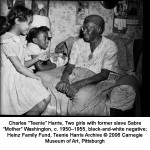By Janet Attard
www.pittsburghscore.org
You bit the bullet. You set up a Web site because new prospects and existing customers kept asking you for your Web site address. Then, too, there were all those stories you kept hearing about small companies bringing in significant business through their Web sites. So, you paid a Web developer thousands of dollars to put your business on the Web, or spent countless hours of your own time learning enough about the Web and about html to put up the site yourself.
But your site’s been up a couple of months and you haven’t gotten a single sale you can trace to the Web site. What happened? What’s wrong? What do you need to do to make your Web site start bringing you business? Here are several tips that will help you fine tune your site to make it a more effective marketing tool.
Make Sure Your Site Looks Professional
Take a hard, cold look at your site—or ask a friend who will be brutally honest to look at the site. Does it look professional? Are the graphics professional-quality and clear? Are the fonts, font sizes, and font colors used in a consistent way? Or does your site include design flaws like these that immediately mark it as an amateur production:
Photos that are squeezed or stretched out of proportion
Multiple elements on the page that are blinking, bouncing, scrolling or turning in circles
Multiple styles of type used for headlines and body copy
Colored background graphics or textures that make it difficult to read the type
Background graphics that are inappropriate for the content of the site (eg.: bubbles on a site selling bookkeeping services)
Text blocks that are out of alignment
First impressions matter on the Web, just as they do anywhere else. And, the first impression your site makes should be one of professionalism and appropriateness for the markets you serve.
Don’t Use the Name of Your Company as the Web page Title
Every Web page has a windows-style title bar. The title that appears in that title bar is determined by what you include in the title “tag” in the html code for the page. You or your Web site designer may want to make the name of your company the title of the page.
That’s not a good idea, however, unless the name of your business includes a descriptive term that someone looking for your services would search for to find what you sell. The reason: Search engines place heavy emphasis on the words in the title bar. Like the text on your page, the closer the text in the title bar matches the term a Web surfer is searching for, the higher your site will rank when the results of the search are displayed. So, if your company name is non-descriptive and little known, leave it out of the title page, or put it at the end of the title.
Don’t Let Your Home Page Be a Flash Presentation
Flash is a technology that allows you to put animated presentations and demos on the Web. Designers love it because it shows off their multimedia skills, to say nothing of increasing the amount they can charge for the site. Business owners often think it makes their site look impressive and make their businesses appear to be on the cutting edge.
But, Flash presentations can make your Web page take a long time to load. Search engines don’t pick them up, and they often annoy visitors who come to your site for product information or facts in a hurry, not entertainment. If you have a product or service that benefits from an animated demonstration, make that one of the choices on your home page (e.g.: “Watch a demo.”) Don’t make the Flash presentation the entire home page. And if your products or services don’t need an animated demo, don’t use the technology at all.
Focus the Home Page & Product Pages on Your Customers’ Interests, Not Yours
You’re proud of your business and your accomplishments. (As you should be.) So, it’s tempting to write a lengthy description of your business accomplishments and run it on your home page with a big photo of yourself, your building and/or your employees, saying, “We’re here to serve you.” But prospects and customers aren’t coming to your site to learn about all the great things you’ve accomplished. They’re coming to your site to find out what you sell and how it will help them.
Get their attention with benefits-oriented headline and text. The headline should make clear what you do and suggest a benefit. For example, “Fast, accurate transcription for Monroe County Medical Offices and Hospitals,” or “Phone systems that grow with your business.”
Don’t toss out that company information, though. After you interest the customer in your products or services, they may want to know more about your company before deciding to do business with you. So, if the purpose of your Web site is to sell your product or services, make the company information a link off your home page, not the focal point of the home page.
Avoid a Cluttered Look
If you sell multiple products, you want them all to be found. And if you are being billed by the number of “pages” on your Web site, you may want to keep costs down. But don’t try to squeeze dozens of images or product descriptions on a single page. The page will look cluttered and make it difficult for visitors to find the products or information they want.
Instead, put small photos of a few of your best-sellers or most representative products on the home page, and then have links to other products in your catalog. Break up the links into logical categories. For instance, if you sell sandals, you might have categories for women’s sandals, men’s sandals, and children’s sandals. If you sell footwear, you might have pages for men’s footwear, women’s footwear and children’s footwear, and then break down each of those pages into categories such as sneakers, shoes and sandals.
Minimize Graphic Sizes to Make Sure Your Pages Load Quickly
Photos and other graphic images make your pages look appealing and help illustrate what you sell. So, they are important to include. But don’t let the size of graphics slow down your Web site. In most cases, images should be thumbnail size—no more than 1 to 1 1/2 inches in size. If a larger image is needed to properly display an item, then you can add a link that says “Click here to see a larger image.” That way big images that take a long time to display will only be displayed by people who really need to see a bigger picture.
Be Sure You’ve Included Important Supporting Information
To turn Web surfers into customers, you’ll want to provide enough supporting information about what you sell to make them feel comfortable buying from you. If you sell software, for instance, you’ll need information about what platform the software uses, compatibility with other products, system requirements and links to press reviews, if any. If you sell graphic design services, the “supporting information” you need should include a portfolio of work you’ve done. If you provide consulting services, it would be a good idea to include case studies describing client problems, what you did to solve them and how they benefited as a result. (Be sure to get the client’s permission before using their name in this way on your site.) A page with testimonials from satisfied customers is beneficial as well.
Make Sure It’s Easy to Place an Order
Imagine how annoyed you’d be if you ran into the supermarket to pick up a container of milk, and couldn’t find the checkout counter? Web site visitors are no different. They will get annoyed if they have to scroll up and down or side to side to find a place to order from you. Avoid the problem by keeping pages short and including a buy now button or link in the same location on every page. A good location is just below the text that describes any product or service.
Be Sure Your Contact Information is Easy to Find
Customers not only want to know what you sell and who you are, they want to know how to reach you. They may have questions about the merchandise you are selling, want to know who they can contact if there is a problem with their order, or prefer talking to a “real person” instead of ordering online. Avoid losing sales by including your phone number, store location (if you have one) and phone number on every page.
Share Links With Other Businesses in Your Community
The tips above will help you get found in search engines and help make your pages more appealing to potential customers. But even in the Internet age, business still has as much to do with who you know as what you do. So talk to business owners who sell different products and services than you do, but serve the same market. Help get each others’ pages found by swapping links and giving each other referrals.


